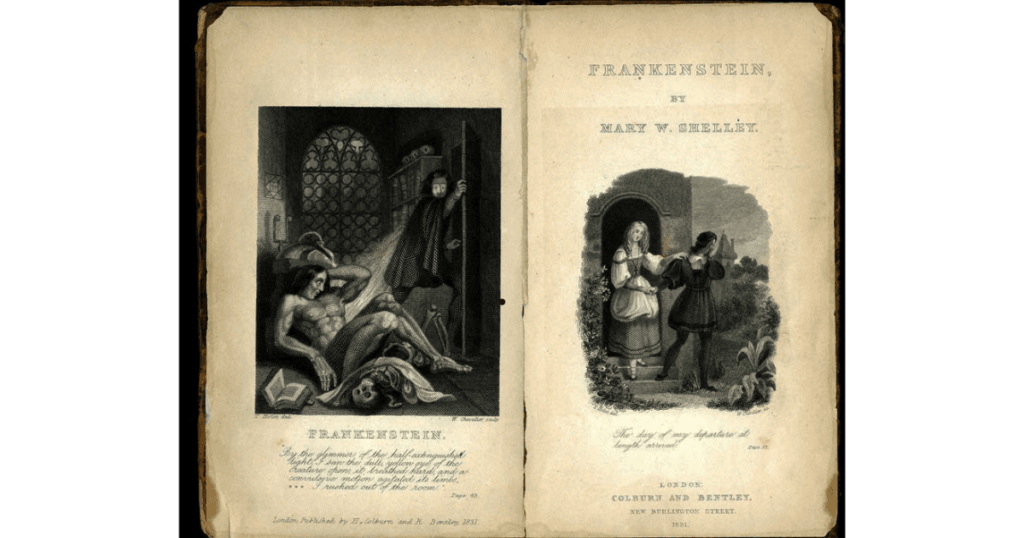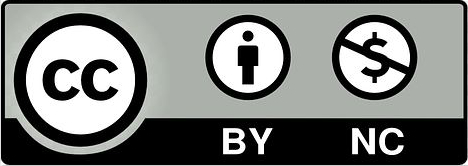
Προβλεπόμενος τελικός χρήστης: Δάσκαλος
Ηλικιακή ομάδα: Ανώτερη δευτεροβάθμια εκπαίδευση
Σχολικό πρόγραμμα σπουδών: Κοινωνική, Φυσική & Αγωγή Υγείας; Κοινωνικές & Περιβαλλοντικές Επιστήμες
Θέματα και θεματικές ενότητες: Collective Action; Power & Influence; Information & Knowledge; Citizenship
Διάρκεια: 3 x 2-hour classes
Τύπος πόρου: Lesson Plans, Presentation, Online Course, Workshop
Λέξεις-κλειδιά: Scientific Responsibility, Biomedical Ethics, Human Cloning, Cultural Myths, Misuse of Knowledge
Γλώσσες: Αγγλικά
Περιγραφή
On a dark and stormy night in 1816, Mary Shelley began writing a story that posed profound questions about individual and societal responsibility for other people. Since that time, ‘Frankenstein; or, The Modern Prometheus’ has become one of the Western world’s most enduring myths. The story provides a framework for discussions of medical advances, which challenge our traditional understanding of what it means to be human.
The ‘Following Frankenstein: Mary Shelley, the Monster, and Medical Science’ module is divided into three two-hour classes that explore thematic and temporal features of Mary Shelley’s creation and its endurance. Each of the classes includes a brief introduction, a list of readings, visual resources, and discussion questions. This module examines the scientific and medical milieu which informed Mary Shelley’s creation of a young student of nature and his monster, and the ways in which this creation continues to speak to contemporary responses to biomedical innovations.
The readings have been chosen with the primary goal of helping students gain a sense of how developments in medicine raised questions about the nature of life and death, resuscitation, and renewal of the body. This engagement with the past is intended to provide background to students and give them a basis for thinking about the ways in which contemporary citizens respond to developments in the biomedical sciences, particularly around the beginning and end of life.
Πώς να χρησιμοποιήσετε αυτόν τον πόρο
This module provides a structured approach for teachers to explore the ethical, scientific, and literary significance of Frankenstein in a classroom setting. Designed as three two-hour sessions, it includes readings, visual resources, and discussion prompts to facilitate student engagement. Teachers can use this resource to connect historical scientific debates with modern biomedical advancements, encouraging students to critically examine ethical dilemmas surrounding life, death, and human responsibility. By integrating literature with science, this module fosters interdisciplinary learning, helping students develop analytical and reflective thinking skills while considering how past scientific discoveries continue to shape contemporary discussions on medical ethics.
Οι πόροι
Link to the resource::
And introductory online exhibition can be found here:
Μαθησιακά αποτελέσματα
- Αναζήτηση προηγούμενων γνώσεων και περαιτέρω ανάπτυξη της γνώσης και της κατανόησης βασικών εννοιών της Αειφόρου Ιθαγένειας, αμφισβητώντας καθιερωμένες κοσμοθεωρίες και αξίες.
- Εφαρμογή μιας σειράς κατάλληλων εργαλείων και πλαισίων για την προώθηση της αειφόρου πολιτειότητας των μαθητών
- Αναστοχασμός της πρακτικής και εξέταση των εθνικών προγραμμάτων σπουδών για τον εντοπισμό ευκαιριών προώθησης της ιδιότητας του πολίτη της αειφορίας με διεπιστημονικούς τρόπους και συνεργασία με εξωτερικούς ενδιαφερόμενους φορείς.
- Συνθέτουν συνεργατικά τις γνώσεις, τα εργαλεία και τα πλαίσια για να δημιουργήσουν εκπαιδευτικό υλικό και σχέδια μαθημάτων προσαρμοσμένα στο δικό τους τοπικό πλαίσιο.
- Ανάπτυξη και εφαρμογή κριτηρίων αξιολόγησης για την αξιολόγηση της αειφόρου πολιτειότητας των μαθητών.
- Μέσω δραστηριοτήτων εργαστηρίων και κοινοτήτων πρακτικής, ανάπτυξη ικανοτήτων και δράσης ως εκπαιδευτές και ηγέτες της Αειφόρου Πολιτειότητας.
Πράσινες ικανότητες
- Αγκαλιάζοντας την πολυπλοκότητα στη βιωσιμότητα: Κριτική σκέψη; Διαμόρφωση προβλημάτων
- Οραματιζόμενοι βιώσιμα μέλλοντα: Futures Literacy; Adaptability; Exploratory Thinking
Creative Commons

https://www.nlm.nih.gov/exhibition/frankenstein/education/index.html
https://www.nlm.nih.gov/hmd/copyright/index.html
Credit Line
If using any material from Historical collections for publication or production, please include the phrase: “Courtesy of the National Library of Medicine.”.
SDGs


